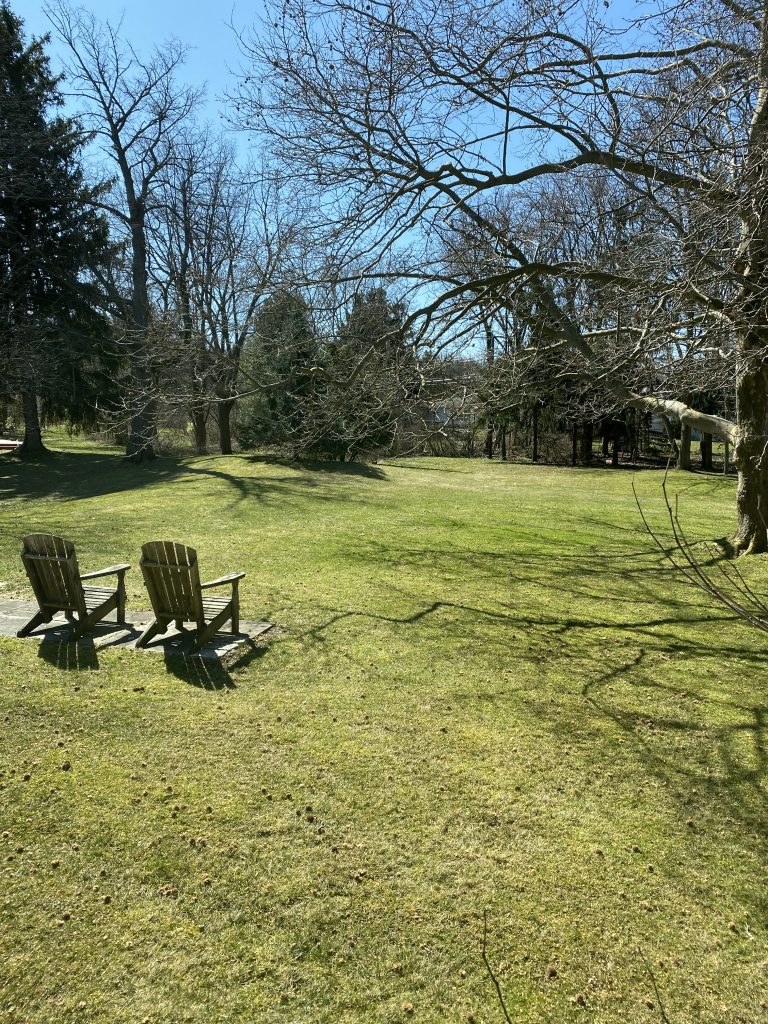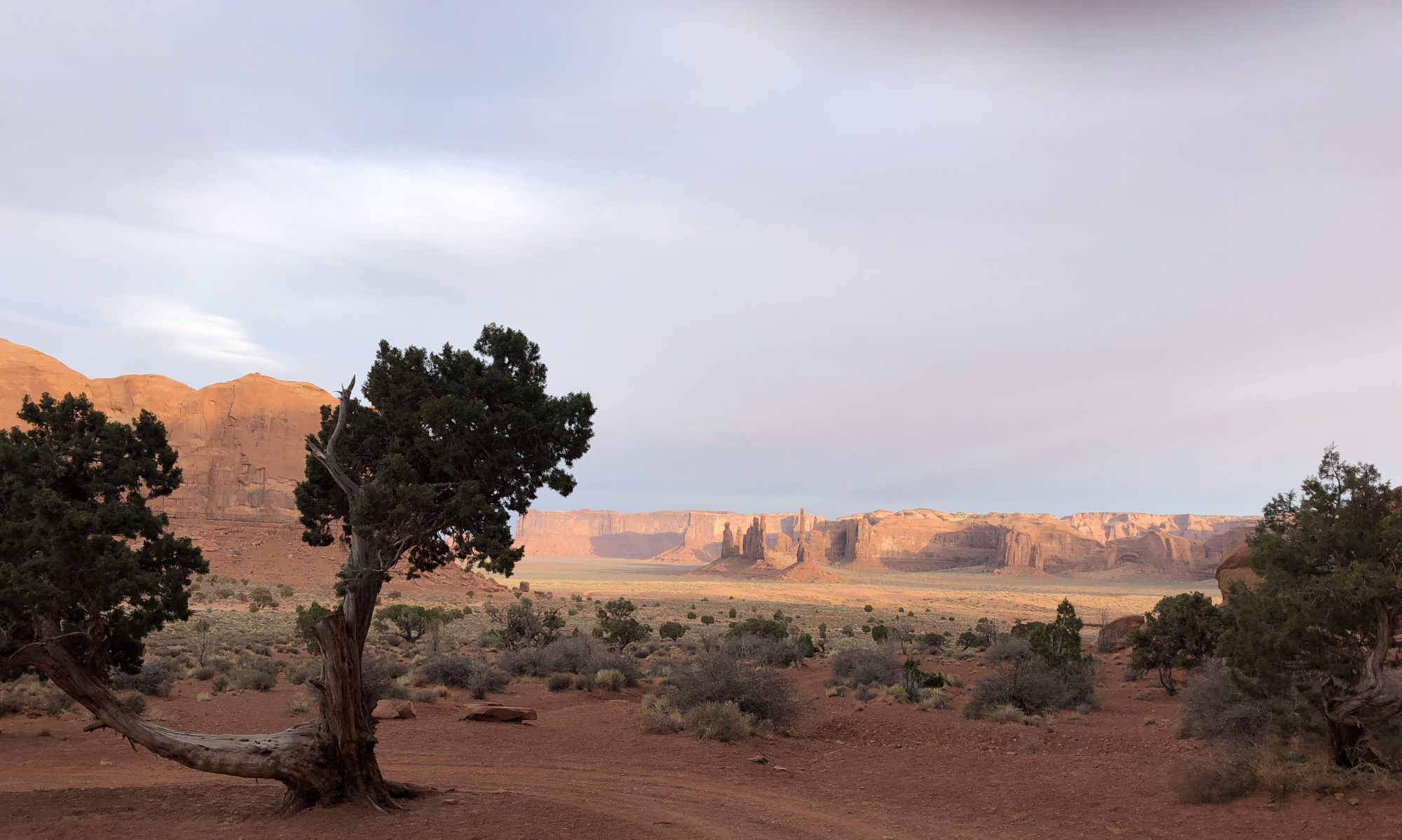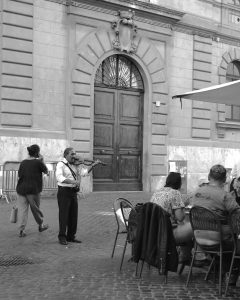
At 66, I find myself branded with a category I never expected at my age. In the days of COVID-19, I feel like I have a sign pinned on my back that says, “over 60 and vulnerable.” I am healthy. I live in a suburban home in a New York State county that as of today has only 63 confirmed cases of the virus (that’s an old news number; 3/27 update: 160), while New York City, where a lot of my family live, has over 9,000 (that’s an old news number; 3/27 update: about 23,000). And let’s not even mention Italy, where a thousand vulnerable citizens died in a day, in part because Italians couldn’t grasp the meaning of social distancing.
My health club is closed on orders from Albany, but I walk 2-4 miles daily. I practice yoga. I confess that I did have a cold this winter, but I can’t remember the last time I had one before that. In short, I certainly don’t feel vulnerable, despite what Dr. Fauci says. (But don’t get me wrong; I thank God for Dr. Fauci.)
Then there’s my husband. His profile checks all the boxes of COVID-19 vulnerability. He’s over 80, diabetic, with a couple of arteries held open by stents. One of his Sunday jobs is organizing his medications for the week. But there he is, taking his daily walks along the nearby canal, cherishing the site of herons diving for fish, the scampering of small dogs on these bright mornings of early spring. He’s not feeling very vulnerable either. Yesterday he got a call from our supermarket pharmacy, which is about a half mile from our house. They called to ask how he was feeling, did he need any medications delivered to our door? “I’m okay,” he said. “I’m really okay.” My husband is from the former Soviet Union. When the call from the pharmacy ended, he said, “Wow. America.”
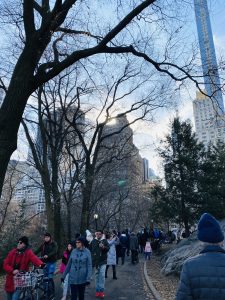
The State of New York is essentially under lockdown now. I talk to family and friends often . . . those who live here, in New York, LA, London, North Carolina . . . They’re all okay.
But I’ve been worried about a Navajo friend of mine who also has all the vulnerability boxes checked. Even before COVID-19 took over the news cycle, where I suppose it will remain for the foreseeable future, my friend was in poor health. She’s over eighty, has diabetes, high blood pressure. She lives alone on the rez, and recently, when she’s called for an ambulance for various non-COVID-19 health crises, she was told an ambulance couldn’t reach her due to road conditions. She lives off US Rte. 64 on a road that I’d experienced a couple of years ago on a good weather day. For fans of bumper cars and pogo sticks, the ride to her house is a rollicking good time. Navajo roads are notoriously awful, preventing kids from getting to school, and, in my friend’s case, the sick from getting to a clinic that could help them get well. You can bet that, regardless of her age and underlying health conditions, my friend is not getting any calls from a pharmacy offering to deliver necessary meds to her door.
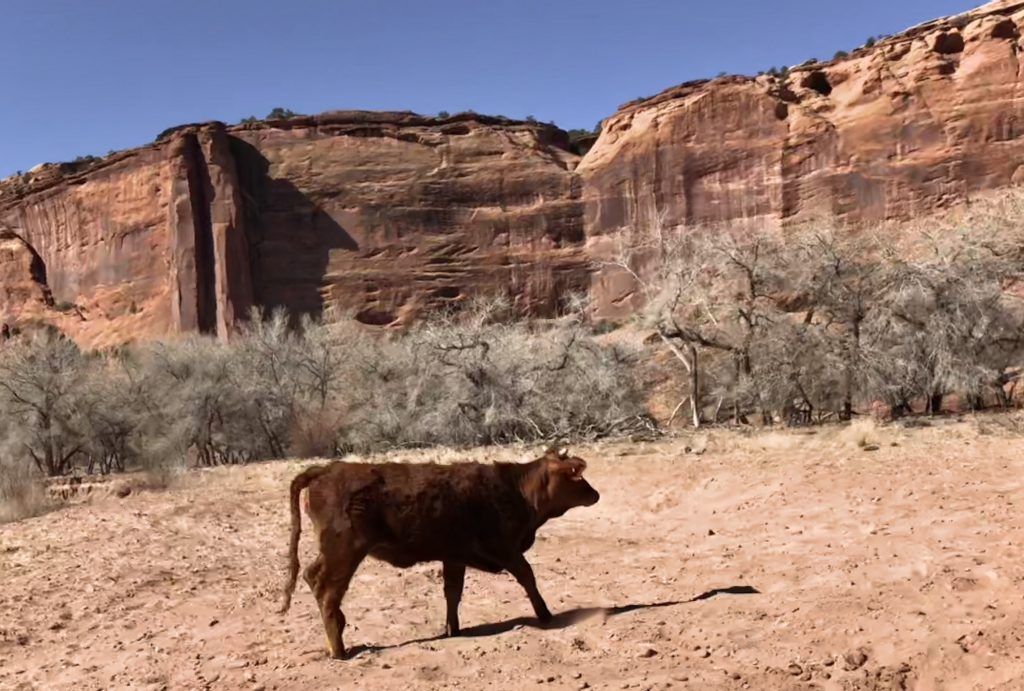
I check on my friend by email, text or phone from time to time to see how she’s doing, if she has help, if she might be considering accepting care of relatives off the rez. I checked last week as the COVID-19 collective consciousness swelled, and I didn’t hear from her, and so I fretted. When I read that I am “vulnerable,” I want to shout, “Don’t tell me I’m vulnerable! I know who’s vulnerable!”
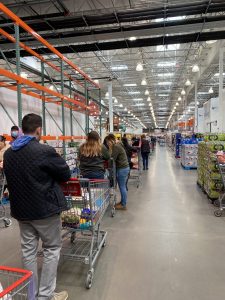
I know Britain toyed with ordering “vulnerable seniors” to stay home until July. Then Governor Gavin Newsom mandated that most Californians stay home. My millennial son is coping with this. Our own Governor Cuomo followed Newsom’s lead. And I’m happy to fall in line and stay home (save trips to buy groceries), maintain social distancing, take my walks and do yoga to free videos on YouTube.
But I think about my Navajo friend. Who’s buying her groceries? I wonder. Who’s making sure she’s safe?
Today, my questions were answered, because my friend replied to my text. She is feeling better and is being careful. She has a mask. She wears gloves when she shops. I had asked her if she was alone. She replied that she had too much company, which she defined as “crows that scold . . . hawks that smirk . . . dogs that beg . . . cats that remind her she forgot milk.” With all the frenzy around social distancing in these days, it’s easy to overlook that living a solitary life is not anathema to many who live in the desert, or in the mountains, or maybe around the corner.
My house is situated near an expressway, where there is usually a rush of traffic that, if I can wax romantic, sounds like ocean waves. But there’s very little traffic now. Now, when I step outside, I can hear the chirping of birds . . . every single chirp. So let’s take stock, breathe the fresh air, pitch our ears to sounds we couldn’t hear before, stay connected while living apart. When we eat through our supply of pasta, we can take heart that we’re not in Italy. We’ll adjust. We’ll give virtual hugs and blow virtual kisses. We’ll get through this.
